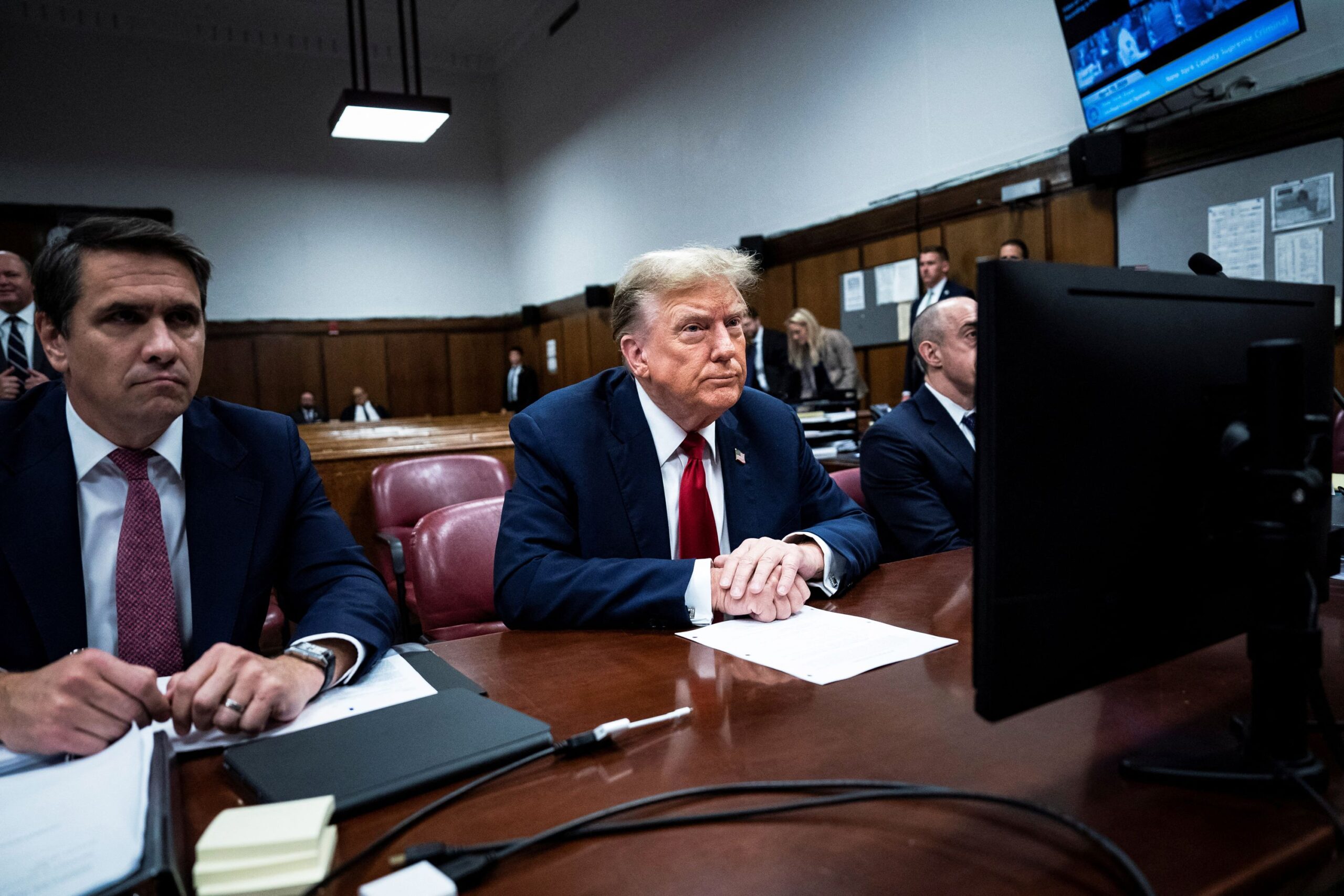The unprecedented criminal trial of a former US president, Donald Trump, commenced in a state court in Manhattan on Monday. The trial, which could span several months, faces the challenging task of assembling an unbiased jury.
Despite the high-profile nature of the case, involving the potential Republican presidential candidate and a 2016 hush money payment to an ex-adult film actress, the trial’s opening hinted at weeks of meticulous, procedural exchanges.
Trump, on his way to court, labeled the trial as “an assault on America” and utilized social media to critique potential witnesses. A separate hearing is now slated for April 23 to ascertain if Trump breached a gag order against attacking individuals associated with the trial.
Inside the Courtroom
Without live or recorded audio or video, the courtroom proceedings were relayed to the public by a handful of reporters present. CNN’s Kara Scannell and Jeremy Herb provided information from the court that was subsequently disseminated to the public.
The first order of business is jury selection, a process expected to take up to two weeks. The trial, set to occur on weekdays excluding Wednesdays, could extend to two full months. Of the initial group of 96 potential jurors, over half were instantly dismissed for admitting they could not be fair and impartial.
Trump expressed a desire to participate in sidebars, which could place him in close proximity to jurors. According to Scannell, defendants seldom engage in sidebars with judges during jury selection, but Trump’s attorneys have indicated his interest in involvement, either at the bench or in a side room.
Searching for Impartial Jurors
The jury pool needs to be narrowed down to 12 jurors and six alternates. Approximately 500 jurors are expected to be summoned each day of jury selection, with the court vetting about 100 potential jurors at a time. They will be asked general questions to determine their impartiality.
Jeffrey Abramson, author of “We, The Jury: The Jury System and the Ideal of Democracy,” argues that having an open mind does not necessitate an empty one. He believes fair jurors who understand the difference between law and politics can be found.
What Will Jurors Hear?
Judge Juan Merchan read out the names of over 40 individuals who could feature in the trial. Potential witnesses range from former Trump aides like Kellyanne Conway and Rudy Giuliani to women who allege they had affairs with Trump: Stormy Daniels and Karen McDougal.
Much of the morning focused on discussions about what evidence Merchan will permit jurors to hear. The judge will allow testimony from McDougal and National Enquirer stories attacking Trump’s opponents, but will not permit the infamous “Access Hollywood” tape or testimony from E. Jean Carroll.
Michael Cohen’s Role
There was extensive discussion about what jurors can hear from or about Michael Cohen, Trump’s former fixer and the key witness in the case. Merchan has a nuanced set of guidelines for how to include the key elements of Cohen’s side of the story without making jurors think Trump is guilty of the crimes Cohen admitted committing.
New York Times reporter and CNN political analyst Maggie Haberman noted that Trump had to sit and watch while all of these uncomfortable subjects were discussed in court. “This trial is going to be filled with personal discomfort for Donald Trump, who has often been able to just attack and then walk away,” she told CNN’s Jake Tapper.

